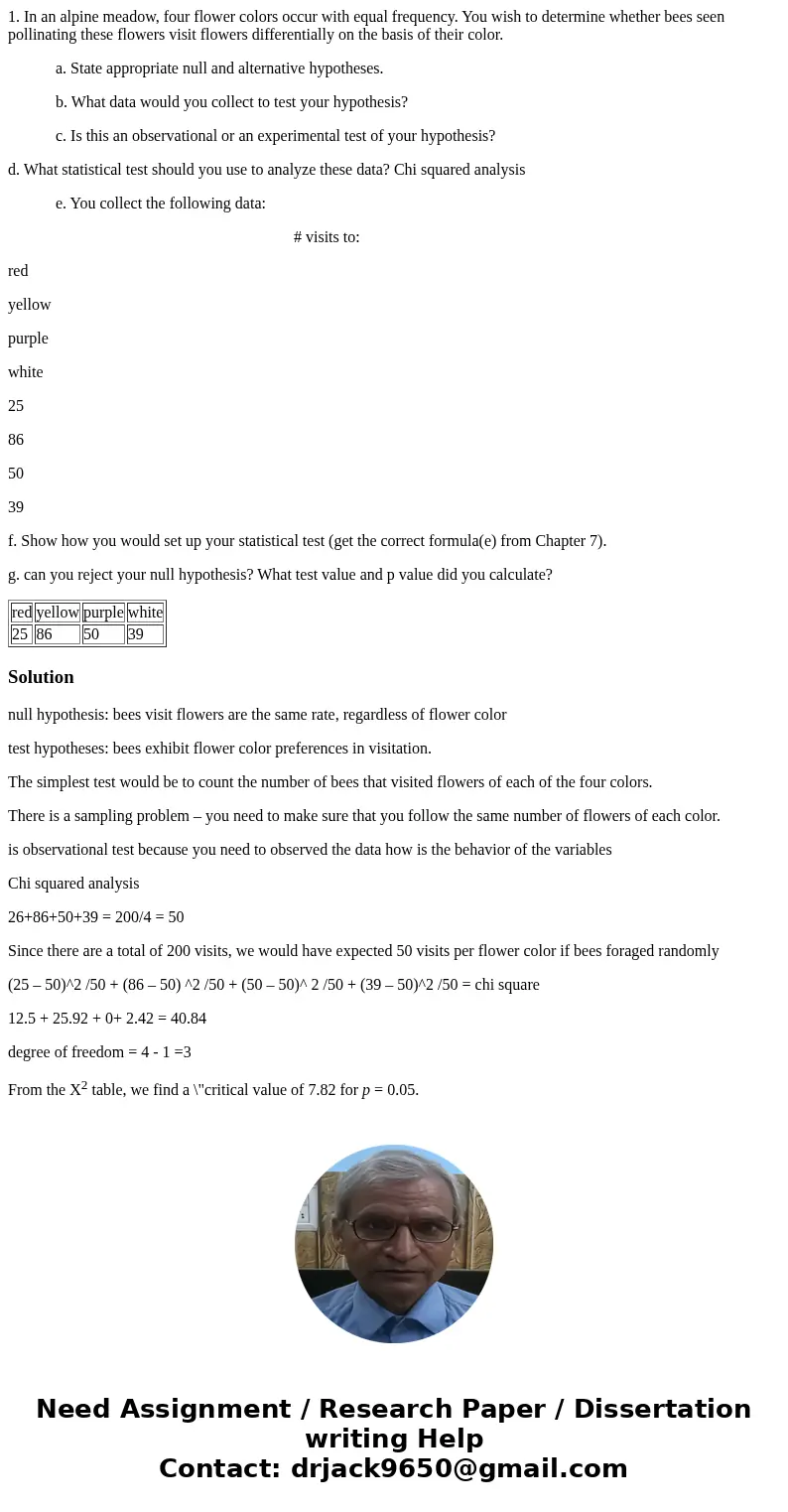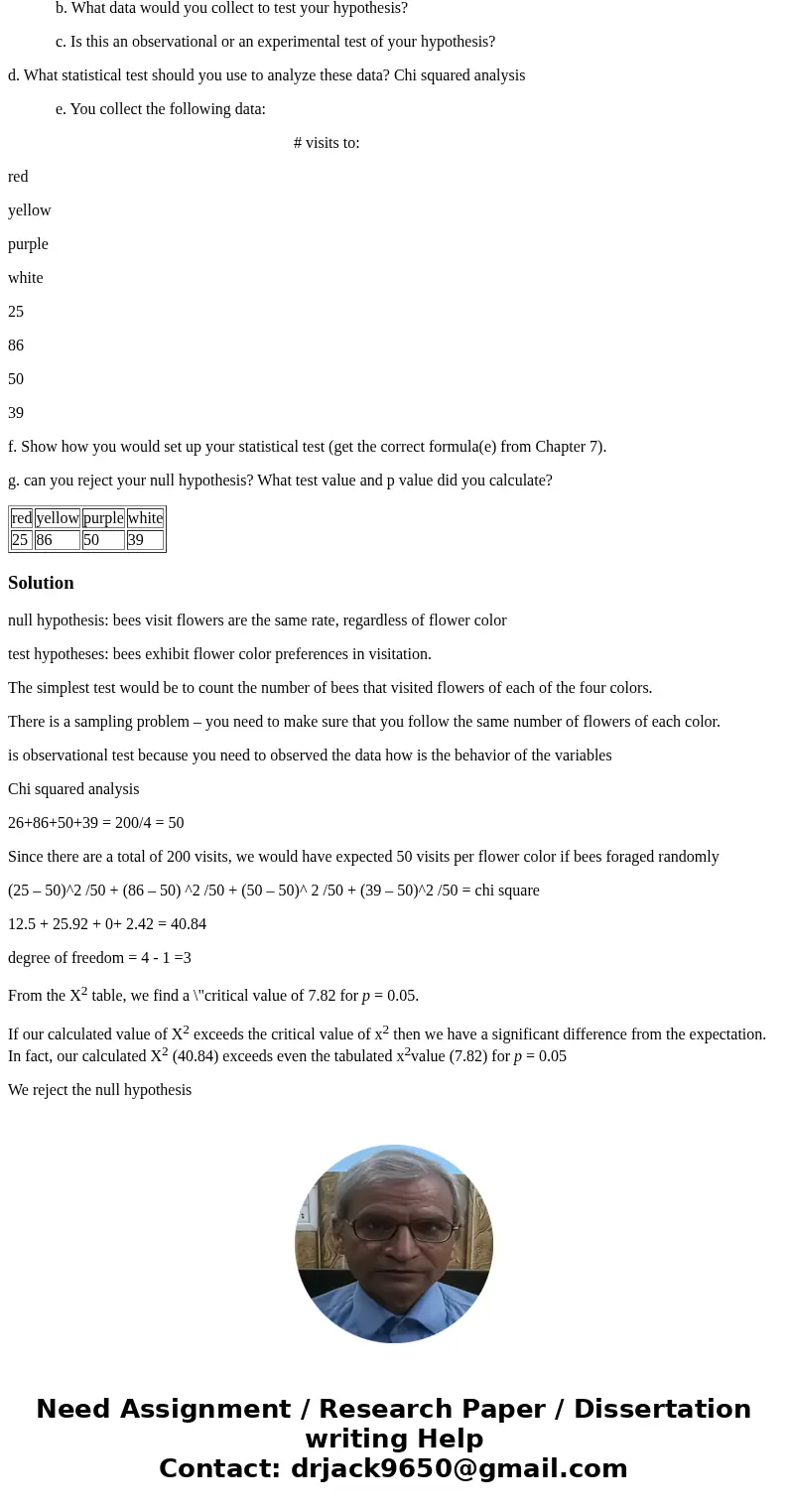1 In an alpine meadow four flower colors occur with equal fr
1. In an alpine meadow, four flower colors occur with equal frequency. You wish to determine whether bees seen pollinating these flowers visit flowers differentially on the basis of their color.
a. State appropriate null and alternative hypotheses.
b. What data would you collect to test your hypothesis?
c. Is this an observational or an experimental test of your hypothesis?
d. What statistical test should you use to analyze these data? Chi squared analysis
e. You collect the following data:
# visits to:
red
yellow
purple
white
25
86
50
39
f. Show how you would set up your statistical test (get the correct formula(e) from Chapter 7).
g. can you reject your null hypothesis? What test value and p value did you calculate?
| red | yellow | purple | white |
| 25 | 86 | 50 | 39 |
Solution
null hypothesis: bees visit flowers are the same rate, regardless of flower color
test hypotheses: bees exhibit flower color preferences in visitation.
The simplest test would be to count the number of bees that visited flowers of each of the four colors.
There is a sampling problem – you need to make sure that you follow the same number of flowers of each color.
is observational test because you need to observed the data how is the behavior of the variables
Chi squared analysis
26+86+50+39 = 200/4 = 50
Since there are a total of 200 visits, we would have expected 50 visits per flower color if bees foraged randomly
(25 – 50)^2 /50 + (86 – 50) ^2 /50 + (50 – 50)^ 2 /50 + (39 – 50)^2 /50 = chi square
12.5 + 25.92 + 0+ 2.42 = 40.84
degree of freedom = 4 - 1 =3
From the X2 table, we find a \"critical value of 7.82 for p = 0.05.
If our calculated value of X2 exceeds the critical value of x2 then we have a significant difference from the expectation. In fact, our calculated X2 (40.84) exceeds even the tabulated x2value (7.82) for p = 0.05
We reject the null hypothesis


 Homework Sourse
Homework Sourse